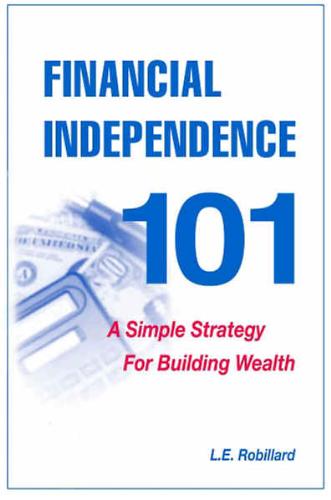Financial Independence as a Goal
@sweetestsunday (15)
July 29, 2008 8:10am CST
Whenever I read personal finance books and articles, I often see the term “financial independence” bandied about. To some, it merely means not relying on a parent or other loved one to help pay the bills. For others, it means freedom from all debt. For yet others, it means freedom from having to work for income.
These are all apt definitions of financial independence, perfectly applicable to different points in life and each useful as a goal for some people. Let’s take a look.
Freedom from financial reliance on loved ones
This is a freedom that many young people earn in their late teens to mid twenties, as they get through college, earn a degree, find a job, and separate themselves from their parents. For many people, this is financial independence. They strive to be their own person, independent of the people around them, capable of standing on their own two feet.
I achieved this goal at age twenty-three, after graduating college and moving on to a well-paying job. I partially achieved it at age eighteen after departing from college - other than holiday trips and one very long summer when an internship fell through, I didn’t live at home after that, I had steady work that provided income, and scholarships and loans took care of the college bill, though my parents did assist with little things fairly regularly during my college years.
Setting it as your goal If you can survive for a significant period of time (multiple months) without going rapidly into debt or without a steady cash infusion from your family, then you’ve achieved this goal. Generally, it requires a decent job, a commitment to keeping that job, and a desire to actually move on from a state of dependence.
Freedom from financial reliance on creditors
This freedom occurs when you are completely free of debt. No mortgage, no student loans, no car payments, no anything. Aside from taxes, you’re free to do what you want with all of your income. This is often used as the definition of financial independence by writers advocating a strong anti-debt position.
I haven’t achieved this goal as of yet. I am rapidly moving towards it, however. Since mid-2006, I’ve eliminated $17,000 in credit card debt, $6,000 worth of auto loans, and $19,000 worth of student loans, fueled by both personal frugality and earnings from The Simple Dollar. Currently, we have about $24,000 in student loan debt to tackle, then our mortgage (at about $170,000, all told). We’re attacking that debt as vigorously as we can, with large advance payments on the student loan debt going out every month. When we get down to just the mortgage, we’re going to start investing as a method to pay it off, as we believe we can earn more by investing our money than by making early payments against a rather low interest rate.
Setting it as your goal Setting this type of independence as your goal takes a strong commitment to the “spend less than you earn” philosophy. You need to be willing to directly put some of your income straight into large debt payments in order to get rid of that debt. This requires enough income to cover your basic expenses and more, a good grasp on how to control your spending, and a debt repayment plan that you’re committed to executing. If you’re willing to take on all of this, then you’re probably ready to take on this goal.
Freedom from financial reliance on employment
Many financially stable people view this as true financial independence: an end to the financial reliance on employment. It doesn’t mean you have to stop working, it just means that income from your work is no longer a requirement. It appears under many names: retirement and “walk away from it all” money are two of the most common ones.
I haven’t achieved this goal yet, either. My wife and I have a lifetime financial plan that involves debt freedom, building the house in the country that we’ve both dreamed of since we were young, and then heading towards this type of financial freedom (hmm… this plan alone might make for an interesting article).
Setting it as your goal Many of the same principles for debt reduction apply here. Spend less than you earn and invest the rest of it for the long term. Work on maximizing your income and minimizing your spending and sock away that difference. This means not only maximizing your career, but maximizing your frugality, too - know the real value of your time and do things with that time that produce value.
Financial independence is a great goal, but as with any goal, you have to define exactly what it means for you and then define a plan to meet that exact goal. Without that exact definition, you’re just whistling in the dark.
No responses




